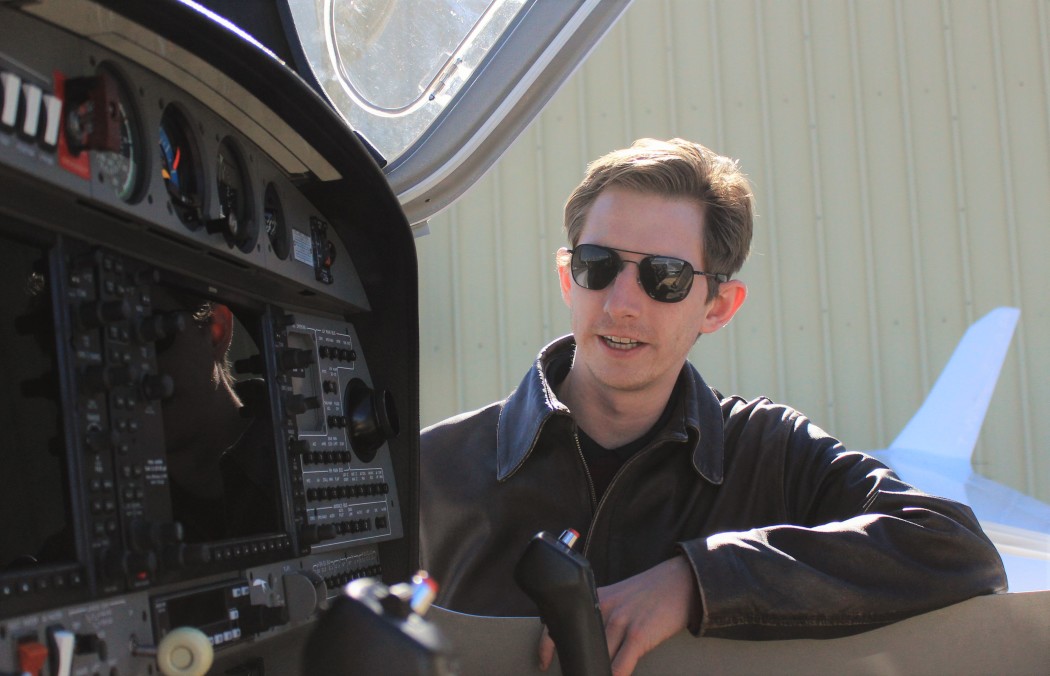Humans of USU: A chat with a future pilot
The demand for professional pilots is increasing dramatically. Boeing Pilot and Technical Outlook predicts that by 2034, the industry will need an additional 500 thousand commercial pilots. Bryce LeBaron, a senior studying aviation technology, is a Utah State University student who is in the process of becoming one of those professional pilots to meet the growing demand for aviation.
The Utah Statesman: What made you decide to be a pilot?
Bryce LeBaron: I always wanted to be a pilot, but I was going to SUU. It didn’t have a flight school, so I became a professional archaeologist for three years.
US: What is the end goal for you?
BL: My hopes and aspirations are anything that involves an airplane.
US: Why?
BL: I love everything about it. Every time I see an airplane on the TV, I just can’t wait until the next time I can go to the airport and go flying. I love to be in anything that flies. It makes me happy.
US: Where would you like to work?
BL: I’d like to fly for a major airline like Delta or SkyWest Airlines. The thought of responsibility of being in command of a large aircraft with several hundred people just seems monumental. It is something that I would love to do. I feel like I am very devoted to this. It is a big deal when you have three hundred or four hundred behind you. It is a big thing to keep them all safe, which our program really emphasizes from the first time that we walk in the door.
US: Tell me a little bit about the Aviation Technology program.
BL: We have a really excellent program here. The regional people don’t realize that we have a flight program. Not only do we have a flight program, we have an excellent flight program. Of the test scores that are for our CFI test rates, for example, our test rate’s average is only 30 percent pass rate. But our USU test scores are around 70 percent pass rate — that is two and a half times the national average.
US: What sets Utah State University’s aviation program apart from other pilot programs?
BL: Being a part-one aviation school, we get so much more training. But I live and breathe aviation 24 hours a day. It really pays off because I really know vastly more about the world than I would otherwise. Our school has a lot of paid positions, so we learn beyond just the realm of the classroom. We have tremendous amount of advantages that can foster students into becoming great aviators.
US: Wouldn’t it be easier to get a pilot license without pursuing your degree through the university?
BL: If more people realized the benefits of coming to an established flight school as we have, rather than just opposed to learning to fly at your local airport, you realize there is such a tremendous advantage to the course work we do. And to have that and how many individual aspects of aviation that we go over and study and cover, it is just a fantastic program.
US: What does the job market look like?
BL: I spoke to a SkyWest recruiter and they said they are only able to recruit about half of the pilots that they need. You used to be at a regional airline for five to 10 years, but sometimes now we have first officer seat from a regional carrier right up to a major airline because the demand is high.
US: Tell me about the student-instructor aspect of the program.
BL: I have flight time to do instruction in my senior year. Our students get their ratings and they finish off their senior year project course work as well as flight instructor. You don’t learn how to be a real pilot until you teach someone how to do it.


What a great commentary on the future of quality pilots being able to find the kind of work they want. Kind of fun seeing my grandson being interviewed!